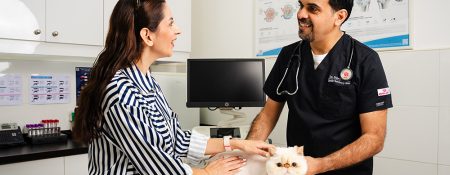Suppliers of quality pet food in Dubai say that feeding your dog correctly while travelling is vital for their well-being. Changes in their environment and routine can stress out your furry friend, which can cause them to have digestive issues and discomfort.
Moreover, dogs expend more energy when they travel, which means they require proper nutrition to sustain their vitality.
Feeding your dog appropriately also guarantees they receive the nutrients they need, keeping them safe from deficiencies that could compromise their immune system.
Lastly, feeding your pet at regular intervals during your travels can help prevent motion sickness and anxiety, ensuring everyone has a smoother journey.
If you want to be sure you’re feeding your dog correctly when you travel, follow these tips:
When travelling with your canine companion, bring their usual dog food. Even if this food comes from a well-known brand, there is a chance you might not be able to buy the exact product on the road or at your destination. Because of this, it is best to take along their dry or wet food.
Bringing a bag of your pet’s regular food helps you avoid worrying about what to feed them and if they will like the new, unfamiliar product you give them. Moreover, the familiar food can help reduce the anxieties your dog is feeling while they are in a strange place.
Additionally, feeding your dog their usual diet reduces their risk of gastrointestinal issues, which can make your travel stressful and less pleasant for everyone.
Packing the right amount of dog food for your pet guarantees you won’t run out and have difficulties looking for the exact or a similar product. However, you also have to avoid bringing too much since you might end up paying for excess baggage fees.
To ensure you bring the correct quantity of pet food for your journey, consider the number of days you will be away from home and how much you feed them daily.
Next, multiply the amount of food your dog eats per meal by the number of meals they’ll have for the duration of the trip.
Consider extra portions for unexpected delays, but avoid packing too much, especially if you’re travelling by plane.
If you’re running low on supplies, order your pet’s food online and have it delivered to your home so that you don’t have to go out to buy it, and you can spend more time preparing for your trip.
A good-quality dog food travel container allows you to pack your pet’s treats and feeding items in one place. This accessory comes in different sizes, enabling you to choose the best one that suits your travelling needs.
It also has several compartments that let you organise your dog’s packs of food, feeding and water bowls, tissues, waste bags and more.
If you’re shopping for this accessory, choose one with carrying straps and a roll-top handle so you can have options for holding it. Also, make sure the container is lightweight so you can lug it around easily and durable so you can use it for a long time.
Keeping your canine friend hydrated is as important as feeding them while travelling. If your dog doesn’t drink enough water, they could become dehydrated and become unwell.
To keep your pet hydrated, always carry a portable water bottle and a collapsible bowl they can use for drinking, or treat your dog to a pet water dispenser bottle. Give them water frequently, especially during breaks or in warm temperatures.
Always give your canine friend bottled water or water from a trusted source. Avoid letting them drink from unknown sources regardless of where you are to prevent any gastrointestinal illnesses.
Canines can suffer from motion sickness, especially if it’s their first time to experience a long journey. To avoid the risk of your pet getting car sick, give them less than their usual amount of food before heading out on the road.
It is also best to give your dog something light and easy to digest and feed them at least four hours before your trip to enjoy a smooth, problem-free journey.
Avoid feeding your pup in a moving car as well since they may find it difficult to chew, swallow and digest the food properly. Wait until you stop to feed them and only give them small amounts of treats. Don’t forget to provide them with water whether they ate something or not so that they stay hydrated.
Feeding your dog human food may not seem dangerous, but it can have serious consequences for their health, particularly when you’re travelling.
Giving your canine friend too much human food could cause them to have a painful stomach or release gas that stinks up the vehicle. If you accidentally feed them toxic foods, such as chocolate, grapes, onions, garlic, and certain nuts, they may even develop very serious conditions, including gastrointestinal distress and organ failure.
If you want to give your pet an edible reward or can’t resist sharing your food with them, feed them a few kibbles or their favourite dog treats. And only do this when you’re not on the road.
A tummy settler formulated for dogs can help you a lot in case your canine companion suffers from an upset stomach.
For your trip, bring a tummy settler that can treat gassiness, flatulence, diarrhoea and constipation in dogs. You can ask your veterinarian for their recommended products to ensure you get medicine that is safe for your pet.
If possible, choose a product with natural ingredients to alleviate your worries about the adverse effects of synthetic medicines on your dog.
Even if you’re travelling and have some changes in your daily routine, it is important that you feed your dog properly. Doing so ensures you and your canine companion have a safe and pleasant trip and enjoy every moment of your journey together.



